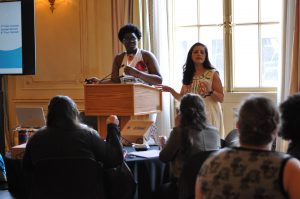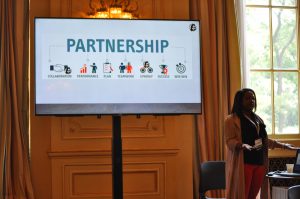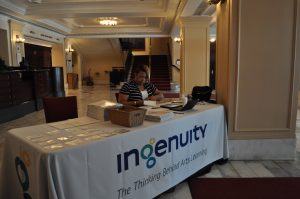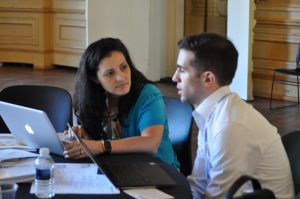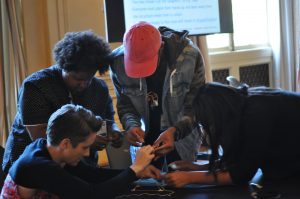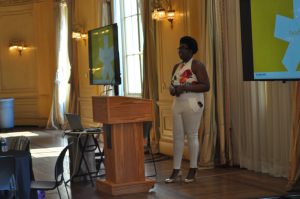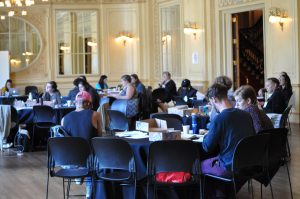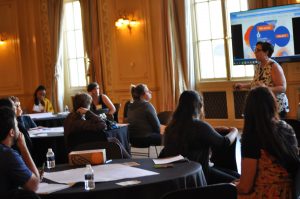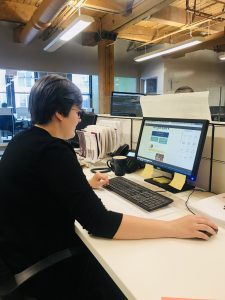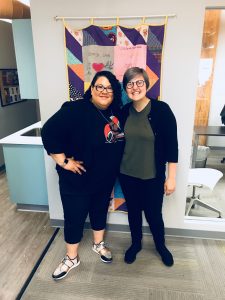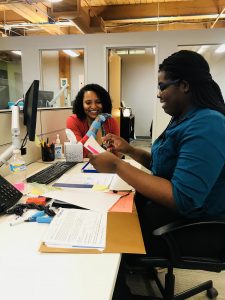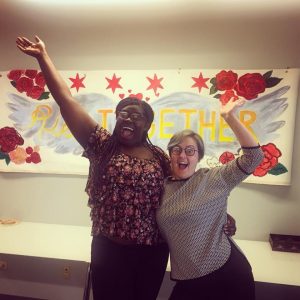Hello, all! Last we spoke, I had just begun my adventure in the South Loop of Chicago’s downtown. Now I find myself in a period of transition, wrapping up my work at Ingenuity and preparing to return to Valpo for my final year of undergrad (crazy, I know). My time at Ingenuity has been everything I had hoped for and so much more. I have learned a wide variety of new things – from how to draft tweets for an audience of over 2,000 followers to how to write basic programming scripts in R. However, of all the new things I learned while interning at Ingenuity, one stands out to me like no other – Steve’s Law.
Steve Shewfelt is the director of the Data and Research department here at Ingenuity. Prior to joining the team at Ingenuity, Steve served in the military and later completed his PhD at Yale University. This summer, I have worked alongside Steve, Tom Bunting, and Emily Cibelli, the data team, in thought partnership around updates to artlook Map, an Ingenuity website that connects arts partners to Chicago Public Schools. Ingenuity launched artlook Map in 2015 as a one-stop-shop for Chicagoans to learn more about the arts education landscape in Chicago and since its inception, artlook has garnered attention on a national level. The majority of my work this summer has been centered around artlook in collaborating on the user experience and design, performing QA testing after a database migration, and collecting user feedback on potential new design implementations. However, here’s where it’s important to note something Steve said to me at the beginning of the summer. In the very first conversation I had with Steve regarding artlook, Steve said, “this is all completely new to us. We are not software people; we are data people.” And in a conversation I had later with Tom Bunting, Ingenuity’s Data Strategy & Products Manager, he would go on to describe the work they do around artlook Map as “making it up as we go along.” The phenomena that Tom described to me, I would later find out has a name – Steve’s Law.
So what exactly is Steve’s Law? Steve’s Law is the following: everyone, everywhere, all the time is making it up as they go along. That’s it. Steve told me about his law in a meeting we had along with the other Ingenuity CAPS Fellow, Claire Utzinger. I remember the feeling I had when he shared this lesson. I felt both terrified and absolutely relieved. At first, I began to question everything around me and what I have known to be true my whole life. I questioned the adults in my life who I have always looked up to and admired and began to question the advice and help they have shared with me. However, upon further reflection, I realized that Steve’s Law is not about a lack of knowledge but more so about endless possibilities. Steve’s Law tells us that life is unpredictable and filled with challenges, but that’s what makes life so exciting. No one knows what’s going to happen tomorrow, and that’s perfectly okay, because when we get there, we’ll figure it out. And nothing could more accurately describe the work being done at Ingenuity – and honestly, it’s been nothing short of inspiring. While it’s true that artlook Map is actually developed by professional software engineers at LaunchPad Labs here in Chicago, the ideas that power artlook are developed in-house. Steve, Tom, and Emily regularly meet to discuss what artlook is and what it could be – despite none of them having any sort of software background.
Although my summer at Ingenuity has ended, the lessons will remain with me for a very long time. I would like to thank the team at Ingenuity for having me this summer, and thank my friends and family for being so supportive of me in the last three months. My alumni mentor this summer was Gideon Litherland and I anticipate his mentorship and friendship will long outlive the summer. I would also like to thank Katie and Thais at the Institute of Leadership and Service for their help and guidance in navigating the waters of the CAPS fellowship. And finally, thank you, reader, for reading this. I hope you take Steve’s Law and run with it.
